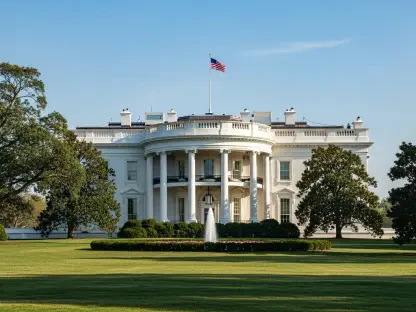Certificate of Need (CON) laws have long been a contentious issue in Nebraska’s healthcare landscape. These regulations necessitate healthcare providers to prove the necessity of their projects, effectively allowing existing entities to hinder competition. This regulatory hold significantly affects the ability of new facilities to emerge, restricts technological advancements, and gives current providers disproportionate control over market competition. The debate over CON laws has intensified as Nebraska seeks to refine its healthcare system amidst contrasts with neighboring states and growing calls for reform.
The Implications of CON Laws
Restricting Healthcare Innovations
The restrictive nature of CON laws in Nebraska has posed significant challenges to healthcare innovation. Under these regulations, new facilities find themselves entangled in bureaucratic hurdles, limiting their ability to introduce pioneering technologies and expand services. The laws serve as a barrier, thwarting the entry of new competitors and thus stifling the momentum needed for progressive medical advancements. As healthcare needs evolve, the inability to quickly adapt hampers the state’s capacity to deliver comprehensive care.
Established providers leverage CON laws to maintain their stronghold in the market, effectively curbing alternative solutions that could benefit both patients and practitioners. The competitive landscape is skewed, with existing entities having undue influence over which facilities can be developed. This discourages potential innovators, creating an environment where healthcare costs may rise due to limited choices and stagnation. Nebraska’s healthcare infrastructure, burdened by these regulations, struggles to meet the growing demand for accessible and affordable services.
Case Study: Butte Senior Living Facility
The daunting challenges presented by CON laws in Nebraska can be exemplified by the case of the Butte Senior Living Facility. This unique nursing home in Boyd County is on the brink of closure due to ownership transfer restrictions imposed by CON regulations. Such constraints prevent alternatives that could otherwise sustain its operation, causing distress to residents and affecting community health dynamics. As the facility faces existential threats from procedural red tape, it underscores the broader impact of these laws on healthcare accessibility.
The potential closure of the Butte Senior Living Facility highlights how CON laws are not merely administrative inconveniences but tangible barriers affecting healthcare delivery. With ongoing limitations stalling ownership transitions, vulnerabilities within the system become evident. This situation raises critical questions about the sustainability of services under restrictive policies, illustrating the urgent need for reform. As Nebraska observes the diverging paths of neighboring states, the call for a reassessment of such policies grows louder.
Legislative Efforts and Economic Perspectives
Comparing Regulatory Environments
Nebraska’s healthcare regulations stand in stark contrast to those of neighboring states such as South Dakota, Kansas, and Colorado, where CON laws are absent. The absence of these restrictive frameworks has empowered these bordering regions to foster a more dynamic healthcare market. Additionally, states like Wyoming and Iowa are currently moving towards repealing their CON laws, further emphasizing Nebraska’s lag in embracing deregulation for improved healthcare access and efficiency.
The divergence in regulatory environments points to a broader trend where limiting barriers in healthcare can lead to more competitive pricing and innovative service delivery. Nebraska’s stance, however, remains encumbered by the persistence of CON regulations that contradict recent legislative shifts. Current efforts, such as Legislative Bill 437, aim to abolish Nebraska’s Health Care Certificate of Need Act, but amendments that retain certain restrictions demonstrate ambivalence in policy direction. These developments contrast sharply with other states that thrive under less restrictive practices.
Assessing Fiscal Impacts
Proponents of CON laws justify the regulations by claiming they control costs and prevent service duplication, yet studies increasingly challenge these assertions. Healthcare economist Matthew D. Mitchell has demonstrated that states with CON laws frequently endure higher healthcare costs and possess fewer hospitals. His research presents compelling evidence that suggests the claimed economic benefits of CON laws might not be as effective as anticipated. Nebraska’s situation reveals a misalignment between regulatory intent and fiscal reality.
As the economic analysis deepens, Nebraska’s healthcare policy faces scrutiny for its misguided assumptions about cost containment. The ongoing debate regarding the fiscal impacts of CON laws highlights the need for a precise understanding of these regulations’ efficacy. While CON laws might have aimed to guide regulated growth, their execution has often led to cumbersome setbacks. Advocates for change argue that repealing these laws could bring about a more balanced market, promoting increased facility creation and progressive healthcare solutions.
Looking Forward
Embracing Competitive Reforms
Given the evolving healthcare needs and administrative challenges, Nebraska finds itself at a crossroads regarding CON laws. The persistent issues faced by providers and patients emphasize the need for comprehensive reforms. As demonstrated by the experiences of neighboring states where deregulation enhanced healthcare services, embracing competition could unlock substantial benefits within Nebraska’s healthcare system. The call to action rests with legislative mechanisms that can foster innovation, choice, and efficiency.
Legislative Bill 437 represents an avenue for change, advocating the repeal of burdensome CON requirements across the board. The initiatives nearing fruition mark a significant opportunity to propel Nebraska toward a healthcare milieu characterized by diversification in service offerings, technological advancements, and reduced economic strain. Policymakers and stakeholders must now direct efforts toward fostering an environment that promotes sustainable growth and enhances access to quality care.
Navigating Implementation Challenges
Certificate of Need (CON) laws have been a controversial aspect of Nebraska’s healthcare system for many years. These laws require healthcare providers to demonstrate the necessity of their proposed projects before approval. This creates significant barriers for new facilities by allowing established entities to prevent competition, thereby protecting their market position. Consequently, these regulations limit opportunities for technological progress and allow existing providers to exert unfair control over the healthcare market competition. As Nebraska endeavors to enhance its healthcare system, the debate around CON laws has only grown more heated. This discussion has gained traction, especially when compared to neighboring states, which often have different regulatory environments. The increasing demand for reform from various stakeholders underscores the urgency to re-evaluate CON laws’ impact on healthcare access and innovation, as the state strives to balance quality and affordability in its healthcare services.









